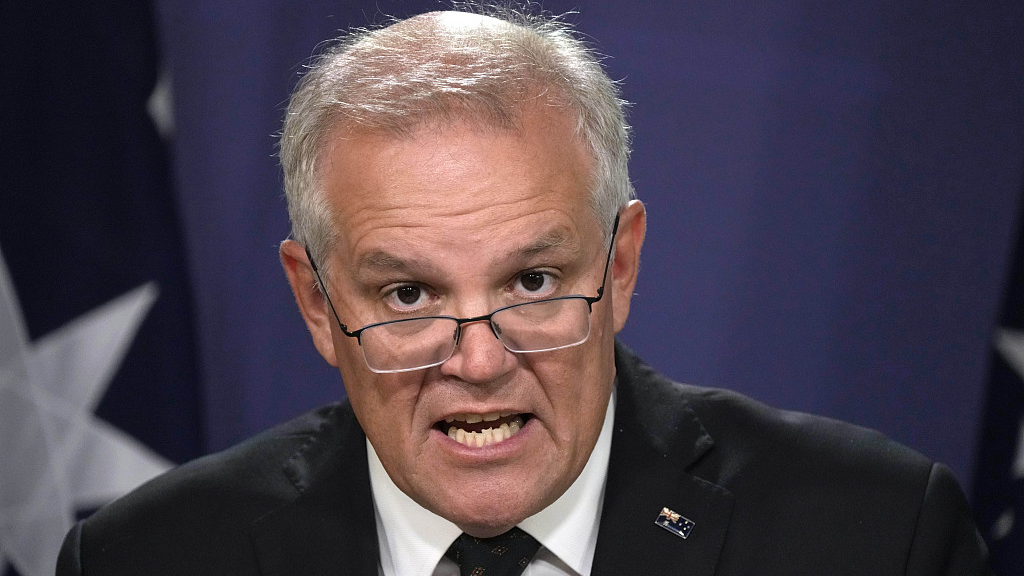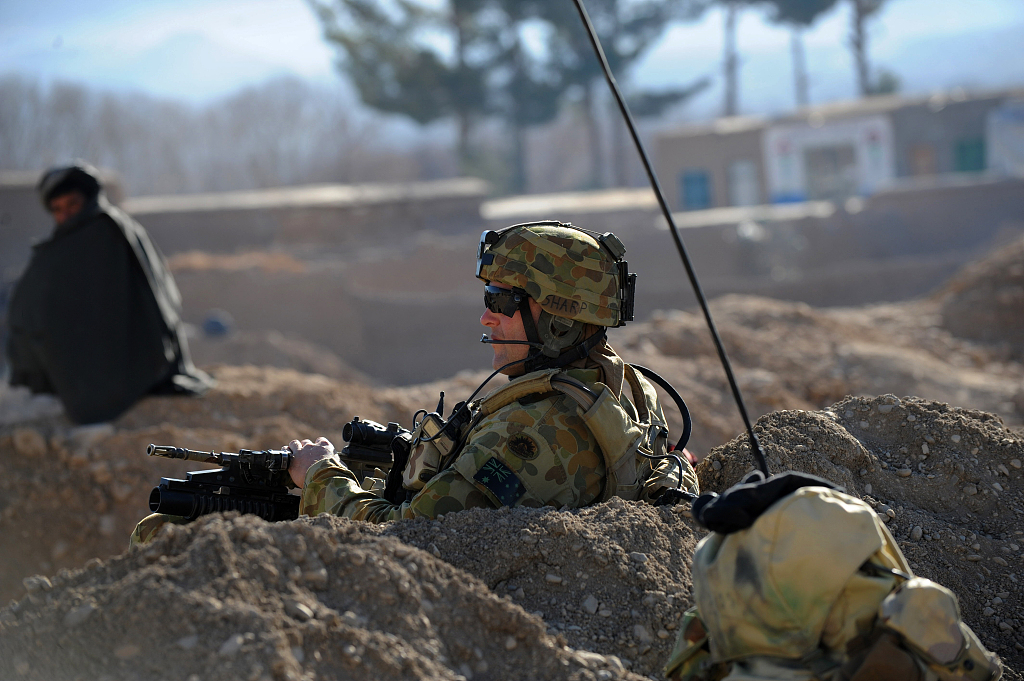
Australian Prime Minister Scott Morrison. /CFP
Australian Prime Minister Scott Morrison. /CFP
Editor's note: Daryl Guppy is an international financial technical analysis expert. He has provided weekly Shanghai Index analysis for Chinese mainland media for more than a decade. Guppy appears regularly on CNBC Asia and is known as "The Chart Man." He is a national board member of the Australia China Business Council. The article reflects the author's opinions and not necessarily the views of CGTN.
Australia's Prime Minister Scott Morrison spoke about an imaginatively named "arc of autocracy" when ramping up the security aspects for the up coming Australian election. It's a disingenuous classification that ignores the United States support for more than a dozen autocracies spanning the Middle East, Europe and Asia.
When directly asked about the prospect of arming China's Taiwan region, Australian Minster of Defense Peter Dutton said: "I think we do whatever we can to deter China from acts of aggression in our region." Several days later he reluctantly withdrew the statement, but further unnecessary damage had already been inflicted on the Australia-China relationship.
So what are the purpose and the context of Dutton's remarks that many in Australia feel are ill-considered.
First we take the historical context. Australia has rarely independently gone to the military aid of another country. To its credit, Australia has been involved in a number of peacekeeping or UN-initiated missions.
In almost every other conflict, Australian engagement has been at the behest of its allies. First as part of the British Commonwealth and later in conjunction with the United States. The Australian military has been involved in a conflict on behalf of another country or agency for decades since its federation. Some of those engagements have satisfied the bar of high morality, others are more open to question. Australia's engagement in Vietnam shows the modern tendency.
Dutton's comments must be considered in this historical context but his comments may have much more to do with domestic Australian politics. They are foolish comments that unnecessarily skew the conversation Australia must have with China. They make any bilateral and bi-partisan discussion more difficult. Perhaps the real objective of these comments is to close off avenues that can be used to reduce inflamed tensions. They hinder facilitation of dialogue with unnecessary and speculative comments.
In this context they should be seen as part of the almost suicidal trajectory of irritating Australia's largest trading partner. This belligerent approach has dominated Australian government thinking for the past five years, portraying itself as an innocent victim standing up to a bully. The truth is more nuanced, but that is lost in the anti-China narrative peddled by influential foreign-funded think tanks.

Australian soldiers are seen in Afghanistan, December 14, 2010. /CFP
Australian soldiers are seen in Afghanistan, December 14, 2010. /CFP
There is more to this context than the ongoing goading of China. There is perhaps a very specific internal political context. Prime Minister Morrison has not seen fit to tone down the comments or pull Dutton back from this precipice. This may be indicative of the leadership threat that Dutton poses for Morrison with Labor Deputy leader Richard Marles commenting: "Increasingly the prime minister is looking like the slowest wildebeest in the herd."
Dutton's inflammatory rhetoric is for home consumption, with apparently scant regard for its impact outside of Australia's borders.
History shows that Australia is a follower not a leader. In many ways, that's a plus because it suggests that Australia is not an aggressive country. On the other hand, it also hides Australia's willingness to engage in conflict at the request of others.
This historical behavior gives some solace in that despite Dutton's desire to meddle, Australia will not go it alone in relation to the Taiwan region. More likely, Australia, as it has done for most of its history, will blithely follow others into a conflict without asking too many questions. Apart from some war-time rationing during the two world wars, these foreign military adventures have had a negligible negative impact on Australia and its economy.
Australia can no longer bask in a repeat of that certainty should it become involved in the way that Dutton wishes. Any U.S.-imposed sanctions that blocked Australia's ability to trade with China would immediately damage the Australian economy. The iron ore trade alone contributes a 10 percent share to Australia's prosperity.
Dutton's comments fail to recognize that Australia's economic security can't exclude China. Rather than continually provoking Australia's largest trading partner, Australian leaders could achieve more security for Australia by developing a deeper understanding of how Australia can live with and acknowledge China's place in both the region and the world. It starts by reaching out to the diplomats with decades of experience in Asia.
The threat to Australia's security comes, not from this rhetoric, but from the propensity of Australia to follow the lead set by the United States without due consideration to the consequences.
Dutton can't be ignored, but nor should his belligerence be allowed to become a de-facto statement of Australian policy.
(If you want to contribute and have specific expertise, please contact us at opinions@cgtn.com. Follow @thouse_opinions on Twitter to discover the latest commentaries in the CGTN Opinion Section.)

